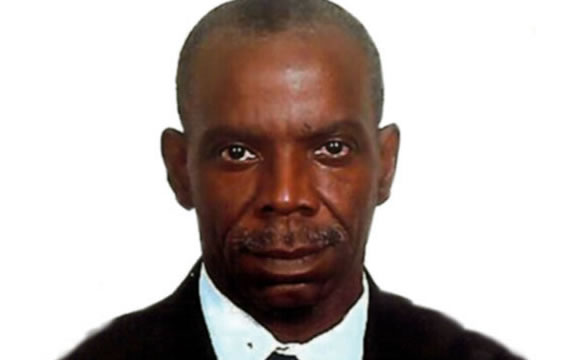
President-Elect Bola Tinubu could help himself to help the economy of the Nigerian people by making statements that can positively impact economic issues, like inflation, foreign exchange rate, interest rate, Foreign Direct Investment, the agricultural sector, even rejuvenation of the practically moribund manufacturing sector.
When he speaks on issues that affect the lives and livelihoods of the people, he will be setting an agenda for the various arms of the business community, including the merchant class, the industrialists, the professionals, the unions and the artisans.
By admitting that, “The days ahead will, however, demand better understanding and cooperation from all sides, because leadership will require that we take tough and hard decisions so that our people and all Nigerian workers can live more abundantly,” in his Labour Day message, he is hinting the people that sacrifices will have to be made.
Immediately after results of the presidential election of June 12, 1993, was being announced by the Chairman of the National Electoral Commission, Prof Humphrey Nwosu, foreign exchange, interest and inflation rates began to drop of their own accord.
But when the innocuous unsigned statement annulled the election, everything went awry. To date, the Nigerian economy has not recovered from that folly. The lesson from this unfortunate event is that public communications will have a positive or negative impact on the Nigerian economy.
Four areas that President-Elect Tinubu, who comes from the business community, must direct his preliminary communications to are: removal of fuel subsidy, financing of the housing sector, the Supreme Court ruling on old and new currency notes and electricity.
He should hint, once again, as he already did sometime after he was declared winner by the Independent National Electoral Commission, that the petrol subsidy will be removed as the regime of the President, Major General Muhammadu Buhari (retd), has indicated.
This will enable oil industry players to make anticipatory moves for effective engagement from May 29, 2023. If those who are interested in establishing modular petroleum refineries feel sufficiently convinced and comfortable with his pronouncements, they could begin to mobilise funds, equipment and technical know-how.
Expectedly, the banking industry will gear up and position itself for effective participation in, and partnership with, the perceived new direction of the post fuel subsidy downstream sub-sector of the Nigerian petroleum industry.
And both the petroleum and the entire banking and financial sectors will be able to look beyond the gaffe in the English and confusing syntax of the Minister of Finance, Budget and National Planning, Zainab Ahmed.
She somehow drew and gave a wrong impression of the kite that the National Economic Council (made of the Vice President, governors of the 36 states and of the Central Bank of Nigeria) flew suggesting that it might be expedient to review the removal of the fuel subsidy policy of the Federal Government.
She said: “(The National Economic) Council agreed that the timing of the removal of fuel subsidy should not be now. But we should continue with all the preparatory work that needs to be done… in consultation with the states and other key stakeholders, including representatives of the incoming administration.”
If the President-elect would speak to the absurdity of a multiple foreign exchange rate regime in Nigeria, he might just be helping the parallel foreign exchange market to accept the reality of a single exchange rate in the future.
A friend heard about this suggestion and thought it would be foolhardy, amounting to playing one’s hand too early, to the advantage of the foreign exchange parallel market lobby. Yes, it would. And that is the point, really.
But it would give those in the corridors of power, who enable this unacceptable foreign exchange regime to thrive, enough notice to accept and begin winding down their obnoxious racket. It’s more than time out for this oppressive foreign exchange tyranny.
And if the President-elect reiterates that the model for financing housing will change and the mortgage sub-sector of the banking industry will be more active, players in the housing industry eco-system and prospective Nigerian homeowners will make anticipatory moves to ready themselves.
Just a broad stroke will tell everyone what to expect from the next dispensation. And all those involved in the housing and mortgage sectors will begin to think about their strategic responses to take advantage of the anticipated shift in policy.
The good news is that this may re-direct big funds and both local and international investors into that sector. As everyone knows, money always follows the path to the biggest bang of the buck.
The expected matching of private enterprise efforts to public or government policies can only deliver advantages to all, especially the new homeowners, the financiers and the housing industry players, who are the real stakeholders.
The President-elect must find a categorical way to state that he will abide by the Supreme Court ruling that the old and the new, or redesigned, currencies will be used simultaneously until December 31, 2023. He wouldn’t be saying anything new or out of place, because the rulings of the Supreme Court must always be obeyed, anyway.
After some mischief-makers went to town with their fake news, it took almost everything in the CBN Acting Director of Communication, Dr. Isa AbdulMumin, to emphasise that, “the new and old currencies have been circulating side-by-side, just as the (CBN) has been taking delivery of a good quantity of the redesigned banknotes from the Nigerian Security Printing and Minting Company Limited.”
He added, “For the avoidance of doubt (both) the redesigned and old notes will continue to be accepted (by the banks and the general public) as legal tender. They will circulate side-by-side for (all commercial and business) transactions ahead of the December 31, 2023 deadline (set by the Supreme Court), when the old N1000, N500 and N200 banknotes will be phased out.”
If the President-elect will speak up, if only to affirm the affirmation (excuse the repetition) of AbdulMumin, it will give respite to Nigerians, who are still “buying” the naira with naira, by the way.
And he wouldn’t have let the cat out of the bag to the extent that any mischievous or crooked Nigerian businessman may want to pre-empt his incoming administration’s monetary policy. There is nothing inordinate for anyone to gain with the knowledge that the next government will abide by Supreme Court rulings.
But it will enable law-abiding individuals and businesses to plan their financial activities between now and the end of the year. And there is everything to be gained by helping Nigerians, confused by the inconsistencies of the current government, from having an idea of how they will be faring, at least, from the second half of 2023.
The President-Elect needs to refer to the idea of Enron, an American energy corporation he engaged to provide electricity for Lagos State, before the thing was scuttled by the government of President Olusegun Obasanjo.
President Buhari’s recent assent to a constitutional amendment to transfer electricity from the Federal Legislative Exclusive List to the Concurrent Legislative List, has signalled where private electricity entrepreneurs could drop their investment anchors.
Within 30 days, the President-elect can tee off an effortless takeoff of his government’s economic trajectory, hitting the ground running.





